PREVIOUS
The Tamil Nadu Tourism Policy 2023 – Part 2
October 13 , 2023
557 days
2958
0
(இதன் தமிழ் வடிவத்திற்கு இங்கே சொடுக்கவும்)
The Tamil Nadu Tourism Policy

Public Sector
- Identifying and creating viable opportunities for tourism development within Tamil Nadu.
- Public investment aimed at creating and enabling core infrastructure.
- Developing comprehensive policies and strategies to promote sustainable tourism growth and development in the State.
- Undertaking marketing initiatives at the destination level to attract tourists and showcase Tamil Nadu's unique offerings.
- Implementing measures and regulations to foster a business-friendly environment and encourage the private sector investments in the tourism sector.

- Private Sector
- Mobilizing resources for the development of tourism infrastructure in Tamil Nadu.
- Identifying and investing in projects with strong commercial potential to enhance the tourism landscape.
- Developing new and innovative tourism products and experiences to cater to the diverse interests of tourists.
- Taking responsibility for the efficient operation and management of tourism services and facilities to ensure a seamless visitor experience.
- Focusing on providing exceptional and memorable experiences to tourists, ensuring their satisfaction and repeat visits.
- Collaborating with the public sector to jointly market Tamil Nadu's tourism offerings and attract a larger audience of potential visitors.

12 different themes
- Overall, the department plans to concentrate its efforts on 12 different themes.
- They include adventure, recreation, caravan, rural and plantation, coastal, cultural, medical and wellness, religious, eco, MICE, heritage and firm tourism.
- As part of theme park tourism, the State Tourism Department envisages creating one large-format Amusement Park with an area of at least 100 acres on the outskirts of Chennai.
- It is similar to global theme parks like Disney and Universal Studios.
- The amusement park shall be developed through private sector participation.
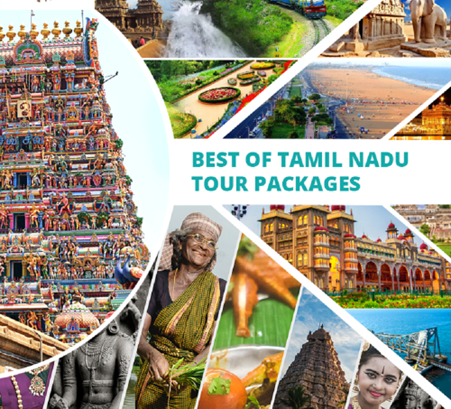
- In the near term, cities like Chennai, Tiruchirappalli, Madurai, Coimbatore and Kanniyakumari will be developed as gateway hubs.
- And the State Tourism Department may notify more cities/towns as gateway hubs.
- “An allocation of 5 per cent from the Smart City funds will be dedicated to enhancing tourism infrastructure in primary Gateway Hubs,” it said.
- The State is endowed with rich natural and cultural attractions.
- They are ranging from its temples and heritage sites to hill stations, waterfalls, and national parks.
- Conceptual master plans for about 300 tourism sites across Tamil Nadu have been prepared and approved by the tourism Department.
- It is covering culture and heritage sites, hills and hill stations, nature trails, coastal sites and temples.
- Out of these, sites will be taken up for development in a phased manner.
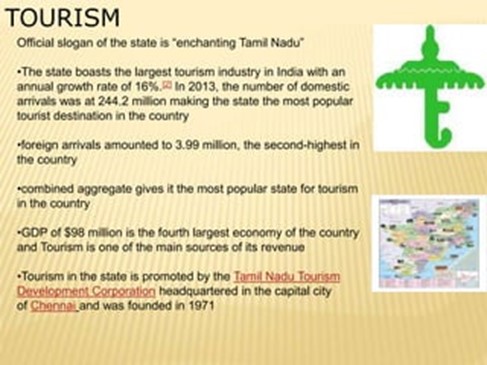
Improving connectivity
- The State government will work towards improving the connectivity of remote locations that are not well connected via road or rail infrastructure.
- Significant physical infrastructural improvements such as walkways, ramps, elevators, and accessible toilets will be made at all major tourist spots to ensure their accessibility for differently-abled individuals.
- Wayside amenities shall be developed, through the public-private Partnership (PPP) model, for every 50-60 km across the State/ National highways.
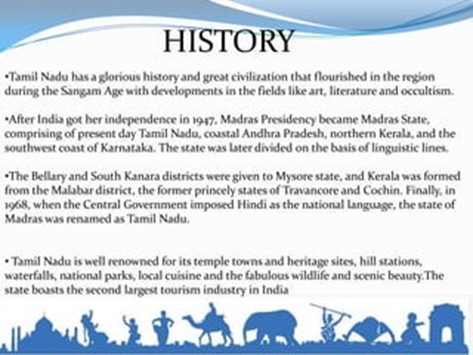
- It aims to facilitate comfortable and convenient transit of visitors from one part of the state to the other.
- The government plans to provide incentives such as capital subsidy, interest subvention, payroll, and quality certification, to support enterprises and projects.
- They will encourage the growth of tourism-related businesses and initiatives under three categories.
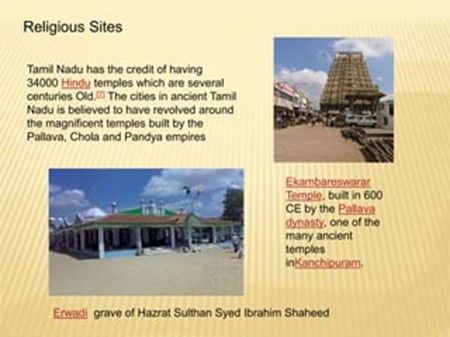
Tourism projects
- Tourism projects such as amusement parks/theme parks, heritage hotels, experiential resorts, eco-hut / camp / tented accommodations, wellness resorts, oceanarium/aquariums, golf courses, plantation/ farm tourism projects, museums, adventure, cruise, and caravan tourism projects and ropeways will be eligible for Single Window clearance.
- The State Tourism Department plans to launch cruise facilities on various stretches on the Chennai – Rameswaram – Kanniyakumari and Chennai - Port Blair route.
- Jetty infrastructure will be developed at these places.
- Private cruise operators shall be encouraged to start cruise services on these stretches.
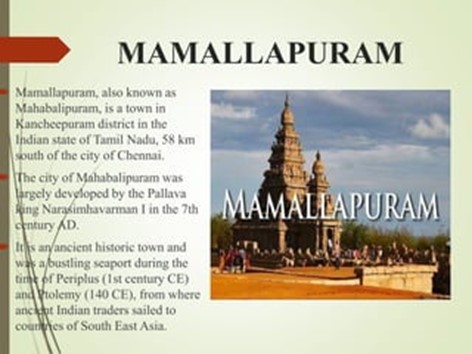
Highlights of the Policy
Industry Status
- Thereby extending to the tourism sector the same benefits hitherto reserved for industrial projects.
- Thus it meets the long-standing demand of various stakeholders involved in the tourism sector.

Priority Tourism Categories
- Adventure Tourism, Recreational Tourism, Caravan Tourism, Rural and Garden Tourism, Coastal Tourism, Cultural Tourism, Medical and Wellness Tourism, Spiritual Tourism, Ecotourism, Meetings, Incentives, Conferences and Exhibitions (MICE) Tourism, Heritage Tourism and Film tourism is aimed at the development of 12 priority tourism sectors.
- Priority will be given to the development of established tourist destinations and routes.
- Incentives and subsidies will be provided for projects in these areas.
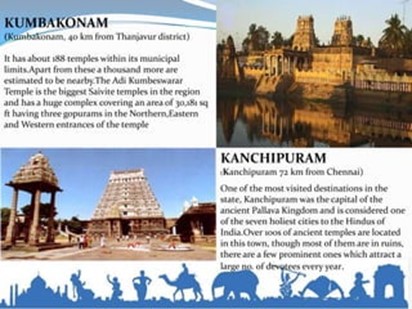
Single Window Approval for Tourism Projects
- A streamlined approval process with single window approval will be undertaken for all eligible tourism projects.
Eligible Tourism Projects to Promote Private Investment
- Theme Parks, Traditional Hotels, Experience Resorts, Eco-lodges, Campgrounds, Rope wagons, Wellness Resorts, Oceanarium, Aquarium, Golf Course, Gardens, Farm Tourism Projects, Museums are the main focus areas for promoting private investment.
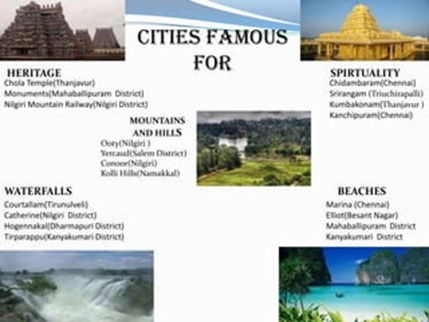
Incentives
Category A projects
- (Projects to be implemented with an investment of up to Rs.50 crore)
- 25% capital subsidy up to a maximum of Rs.1.50 crore.
- Additional capital subsidy of 5% up to a maximum of Rs.5 lakh will be given to projects promoted by women, SC, ST, transgender, differently abled (divyang) persons.
- 5% additional capital subsidy up to a maximum of Rs.25 lakhs for expansion of companies.
- Additional capital subsidy of 10% up to a maximum of Rs.5 lakh will be given to micro enterprises.
- Wage incentives for employees in establishments employing more than 20 persons.
- It will be provided at the rate of Rs.24,000 per annum per employee for up to 3 years.
- Interest subsidy will be provided for micro enterprise, new and expansion tourism projects and subsidy for obtaining national and international certifications.
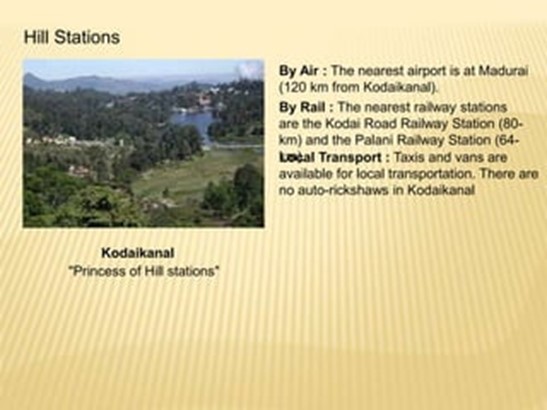
Category B projects
- (Projects to be implemented with an investment of Rs.50 crore to Rs.200 crore)
- 5% to a maximum of Rs. A capital grant of up to 3 crores will be provided.
- Wage incentives for employees in establishments employing more than 20 persons will be provided at the rate of Rs.24,000 per year per employee for up to 3 years.
- A subsidy of up to Rs.2 lakh will be given for obtaining national certificates and up to Rs.10 lakh for obtaining international certificates.
- 25 per cent incentive up to a maximum of Rs 25 lakh for green initiatives in companies.
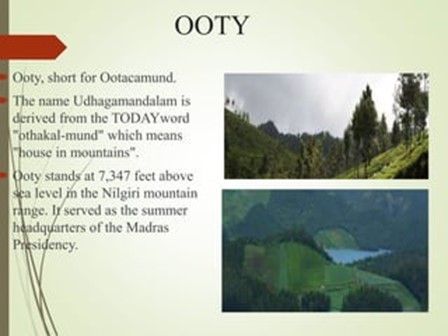
Category C projects
- (Projects to be implemented with an investment of more than Rs.200 crores) – Structured incentives will be provided on a project-by-project basis
- For new hotels in major tourist destinations, the difference between commercial electricity charges and corporate electricity charges will be refunded up to 10% of the investment amount for a maximum period of 3 years.
- For new projects with an investment of more than Rs.200 crores and providing employment to at least 50 persons, tariff concessions on power usage.
- It will be given back for a maximum period of 3 years, based on a certificate survey paid by the Labor Provident Fund.
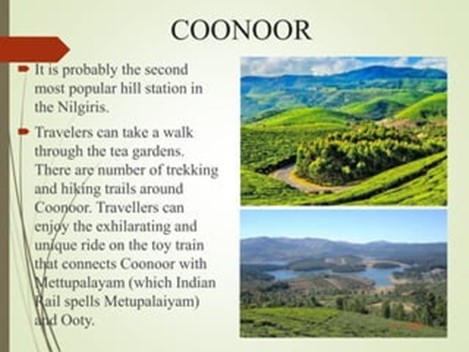
Operational Guidelines
- Operational guidelines published by the Industries Department and the MSME Department, from time to time, shall be applicable for incentives to be approved and disbursed under the Industrial Policy and MSME Policy of the state government respectively.
- For other items, the Department of Tourism shall publish the suitable guidelines from time to time.

Grievance Redressal
The State Government
- It reserves the right to amend any provision(s) including amendment or withdrawal of any of the support mechanisms, from time to time under the provision of the Policy.
- It reserves the right to review the matter regarding sanction/ disbursement of support to the eligible Tourism Project.
- And in this connection, the State Government’s decision shall be final.
- It reserves the right to make/ amend the necessary rules for implementation of this Policy as and when required.
- In case of any conflicts, the Apex Committee may take a decision in accordance with the prevailing policy.
- And the decision thus taken shall be final and binding on all concerned.
- And its compliance shall be mandatory for the concerned department/ parties.
- Tourism creates jobs, strengthens the local economy, and contributes to local infrastructure development.
- It can help to conserve the natural environment and cultural assets and traditions, and to reduce poverty and inequality.

Leave a Reply
Your Comment is awaiting moderation.


